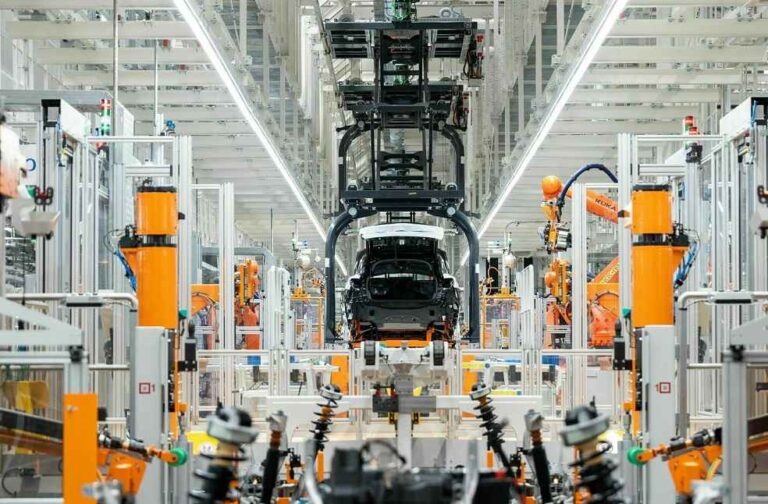China’s auto parts suppliers are emerging as global frontrunners in intelligent vehicle technologies, shifting from traditional downstream providers to innovation partners co-developing next-generation mobility systems with major international automakers.
This transformation is evident through a series of high-profile collaborations. BMW Group recently partnered with Chinese smart driving startup Momenta to develop an advanced driver-assistance system (ADAS) tailored for the Chinese market. The system integrates artificial intelligence and automotive engineering expertise while adapting to local driving conditions.
Earlier this year, Bosch joined forces with Beijing-based Horizon Robotics to co-develop multifunctional cameras and ADAS platforms powered by Horizon’s Journey chip series. Christoph Hartung, President of Bosch’s Intelligent Driving and Control Systems, called China a ‘global innovation hub’ for automotive intelligence and praised its local partnerships.

Similarly, Ecarx, a technology firm based in Wuhan, has signed a deal with Volkswagen Group to supply intelligent cockpit solutions for Volkswagen and Skoda vehicles, with initial launches planned in Brazil and India.
According to Zhang Yongwei, vice-chairman of China EV100, this wave of international partnerships signals a larger shift: China is evolving into a global center for automotive innovation and supply chain leadership. To stay competitive, multinational automakers must invest more in local R&D and deepen ties with Chinese suppliers.
This evolution is already reshaping how global automakers collaborate with component manufacturers. Zhang Haizhou, Chief Brand Officer of Asensing, a leading positioning sensor firm, noted that domestic suppliers now co-create intelligent driving platforms rather than merely deliver components. Asensing has delivered over 3 million positioning systems and works with more than 30 global automakers.

In the semiconductor space, chipmakers like Beijing-based SemiDrive are redefining industry standards through close collaboration with car manufacturers. Vice-President Chen Shujie highlighted that product definitions are now jointly developed with automakers, accelerating the pace from design to deployment. The company has already shipped over 8 million automotive-grade chips across 100 models and 260 clients.
These co-development strategies, according to Wu Songquan of the China Automotive Technology and Research Center, are essential as the industry moves toward electrification, connectivity, and intelligence. The traditional top-down supply chain model is giving way to a networked ecosystem built on shared risk, early-stage collaboration, and mutual technical refinement.
China’s vast domestic market plays a key role in this transformation. With a 77.8% installation rate of Level 2 and above ADAS in new energy passenger vehicles during the first four months of 2024, the country provides a unique environment for rapid product validation, refinement, and mass deployment.
Industry experts agree that this scale and maturity create a virtuous cycle: high adoption drives improvements in reliability and innovation, attracting more international partners seeking proven, high-performance solutions.
TRENDING | Bosch to Cut 1,100 Jobs in Germany Amid EV Demand and Cost Pressures





